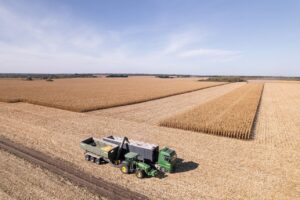
The crop division of the Alebor Group grain trading company has completed the 2025 production season, the company’s press service reported on Facebook.
According to the report, the company’s specialists grew and harvested wheat from 2,000 hectares with a yield of over 7 tons/hectare, corn from 1,100 hectares with a yield of 14.5 tons/hectare, rapeseed from 1,500 hectares with a yield of 3.6 tons per hectare, and sunflower from 1,800 hectares with a yield of 3.85 tons per hectare.
Alebor Group is a trading company founded in 2006 in the Cherkasy region. Its structure includes the Khristinivskoye Grain Receiving Enterprise (with a storage capacity of 74,000 tons of grain), the Voronovitske Grain Receiving Enterprise (104,000 tons of grain), Chesne Grain Receiving Enterprise (27,500 tons of grain), transport companies Boleko and Avtoera with a fleet of 210 heavy-duty grain trucks, and construction company Alebor Real Estate.
According to information on the company’s website, Alebor Group is one of the top 20 grain trading companies in Ukraine, exporting about 2 million tons of grain annually. The group has its own land bank of 6,500 hectares. The company’s founder is Oleksiy Kustov.
KMZ Industries is the largest manufacturer of elevator equipment in Ukraine and produces a full range of products, including silos, grain dryers, transport equipment, and separators, as well as providing automation and installation services.
According to the company, it has built more than 5,000 facilities. KMZ Industries silos with a total volume of more than 12.5 million cubic meters are in operation.
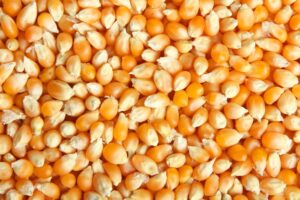
TAS Agro agricultural holding is completing the harvest of late crops, with an average corn yield of 9.6 tons per hectare, the agricultural holding’s press service reported on Facebook.
“In recent years, we have been steadily improving the quality of this crop. The company’s average yield exceeds the planned indicators and the average for Ukraine,” the agricultural holding said, adding that this result was achieved through the use of modern cultivation technologies and balanced agronomic decisions.
TAS Agro added that in 2026, it plans to allocate 9.2 thousand hectares for corn cultivation.
TAS Agro was established in 2014. Its land bank includes 88,000 hectares in the Chernihiv, Sumy, Kyiv, Vinnytsia, Kirovohrad, and Mykolaiv regions. It specializes in crop production, and the agri-holding’s elevator capacity is about 250,000 tons. The livestock business is represented by a herd of 5,500 head of cattle, of which 2,500 are dairy cattle.
The agricultural holding is part of the TAS group, founded in 1998. Its business interests cover the financial sector (banking and insurance segments) and pharmacies, as well as industry, real estate, and venture projects.
Serhiy Tihipko is the founder of TAS and the beneficiary of the TAS Agro agricultural holding.
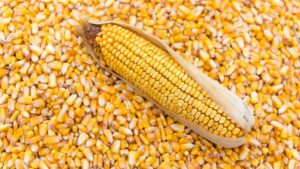
The US Department of Agriculture (USDA) has raised its forecast for global corn exports in the 2025-2026 marketing year by 1.63 million tons to 205.10 million tons, despite the expected reduction in Ukrainian supplies.
According to the December report, with global exports growing, the estimate of global corn carryover stocks, on the contrary, has been reduced by 2.19 million tons to 279.15 million tons, reflecting more active use of grain and the maintenance of a fairly tight supply and demand balance.
For Ukraine, the USDA has lowered its corn harvest forecast from 32 million tons to 29 million tons due to a reduction in acreage and yields, as well as difficult weather conditions during harvesting. The export forecast has been lowered from 24.5 million tons to 23 million tons, domestic consumption from 7 million tons to 6 million tons, and carryover stocks from 1.55 million tons to 0.85 million tons. This means that additional growth in global corn exports will be provided by other major market players.
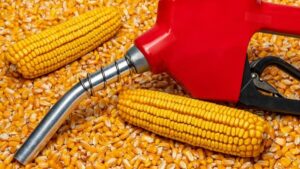
In Ukraine, approximately 1 million tons of capacity for processing corn into bioethanol is currently being built within industrial parks, which will require 3 million tons of corn annually to meet their raw material needs, according to Taras Mykolayenko, director of the Ukrainian Association of Bioethanol Producers.
“As soon as there is talk of creating a new industrial park, every second one envisages the production of bioethanol. We have 1 million tons of capacity that is just starting to be laid. If we convert (these figures – IF-U) into corn, we need 3 million tons. So, in an optimistic scenario, at full capacity (of bioethanol plants – IF-U), corn will be processed here,“ he said at the conference ”Agribusiness in Ukraine” in Kyiv on Thursday.
Mykolaienko specified that Europe currently consumes 6 million tons of bioethanol per year, so Ukrainian products could definitely be exported to the European Union. As part of the updated trade agreement, the EU, under the influence of its own producers, planned to set a quota for Ukraine at 100,000 tons, which, as a result of negotiations, the Ukrainian side was able to increase to 125,000 tons. The industry plans to increase it to 300,000 tons by 2026.
At the same time, he recalled that in July 2025, a bill was registered in the Verkhovna Rada, which provides for the introduction of a mandatory addition of more than 7% bioethanol to fuel in Ukraine from July 2026, the share of which should ideally be 10%. A similar requirement will apply to imported goods. Accordingly, bioethanol consumption in the domestic market will increase.
In addition, Mykolaienko said that the industry association will try to protect its own domestic market in 2026.
“We are faced with the fact that, in addition to quotas, there are technical regulations in the European Union. These are real non-trade barriers that work well. (…) If necessary, Europeans have a mechanism to stop exports. We plan to develop the same mechanisms, develop and implement a domestic environmental certification system, and we will also protect the Ukrainian market,” concluded the head of the Ukrainian Association of Bioethanol Producers.
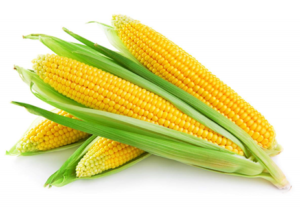
Kernel, one of Ukraine’s largest agricultural holdings, sold 499,000 tons of grain and oilseeds in July-September 2026 (FY, July 2025-June 2026), sold 499,000 tons of grain and oilseeds, with wheat accounting for 89% of the volume, the agricultural holding reported in its quarterly report.
“Profitability was further supported by favorable price conditions on the grain market, which helped to compensate for uneven yields in different regions,” the agricultural holding noted.
The agricultural holding named unfavorable weather conditions, which shifted the development phases of both grain and oilseeds, among the main features of the 2025 season. Two late spring frosts affected the growth of winter and early spring crops. A prolonged cool spring and summer with sharp fluctuations in day and night temperatures slowed plant growth in the northern regions. In the central regions, a constant shortage of soil moisture and limited rainfall hampered crop development and contributed to their premature wilting and early ripening.
According to published statistics, Kernel allocated 172,000 hectares to corn in the 2025 season, which is 98% more than last year. and thanks to a yield of 9.2 t/ha compared to 8.4 t/ha a year earlier, a gross harvest of 1,584 thousand tons was obtained, which is 18% more than last year.
In 2025, 94,000 hectares were planted with wheat (+1% compared to 2024), with a yield of 5.9 tons/hectare (-3%), resulting in 552,000 tons (-1%). The agricultural holding allocated 46 thousand hectares (-31%) for sunflowers, with a yield of 2.7 t/ha (-4%) and a gross harvest of 124 thousand tons (-33%). The area under soybeans was reduced by 44% to 22,000 hectares this year, while the yield increased by 7% compared to last year and amounted to 2.3 tons/hectare, which allowed for a gross yield of 54,000 tons (-65%). In 2025, the agricultural holding allocated 22,000 hectares for the cultivation of rapeseed, other secondary crops, and fallow land, which is 44% less than last year’s volumes.
As of the end of September, Kernel had completed the harvesting of wheat, sunflower, and soybeans on 100% of its production areas, while corn was harvested from 87% of the areas.
At the same time, the agricultural holding completed the sowing of winter crops for the 2026 harvest and sowed winter wheat on 84,000 hectares and winter rapeseed on 38,000 hectares.
Before the war, Kernel was the world’s leading producer of sunflower oil (about 7% of global production) and its exporter (about 12%). It is one of the largest producers and sellers of bottled oil in Ukraine. In addition, it is engaged in the cultivation and sale of agricultural products.

As of October 31, farmers harvested 40.2 million tons of grain and legumes from 8.77 million hectares, which is 76% of the area sown with these crops, according to the Ministry of Economy, Environment, and Agriculture on its website.
Last year, on the same date, 47.2 million tons of grain were harvested from 11.106 million hectares, meaning that this year’s figures are 14.8% and 21.1% lower, respectively, mainly due to the later start of the corn harvest.
As noted by the Ministry of Economy, 10.36 million tons of corn have been harvested from 1.31 million hectares, while last year at around this date, 18.3 million tons were harvested from 3.07 million hectares.
As for wheat, its harvest is slightly higher than last year’s – 22.78 million tons from 5.05 million hectares compared to 22.30 million tons from 4.9 million hectares, while barley is slightly lower – 5.37 million tons from 1.35 million hectares compared to 5.50 million tons from 1.41 million hectares.
This year’s pea harvest is significantly higher – 660,700 tons from 271,300 hectares compared to 465,300 tons from 212,200 hectares last year, while buckwheat and millet are still significantly lower – 82,500 tons versus 126,900 tons and 61,500 tons versus 159,500 tons, respectively.
The harvest of other cereals and legumes this year reached 881.6 thousand tons from 317.6 thousand hectares as of October 24.
It is noted that among the leaders are, in particular, the Odesa region with 3.80 million tons, the Poltava region with 3.119 million tons, the Chernihiv region with 3.04 million tons, and the Vinnytsia region with 2.99 million tons.
The harvest of wheat, barley, and peas has been completed, the Ministry of Economy noted.
As for oilseeds, the rapeseed harvest has already been completed, and it turned out to be only slightly less than last year’s – 3.32 million tons against 3.5 million tons on almost equal areas of about 1.3 million hectares.
However, there is a significant lag in the harvesting of soybeans and sunflowers, which is still ongoing: 3.94 million tons of soybeans have been harvested from 1.52 million hectares, compared to 5.73 million tons from 2.52 million hectares on the same date last year, while sunflower seeds – 8.37 million tons from 4.24 million hectares compared to 9.599 million tons from 4.67 million hectares.
In addition, sugar beet harvesting is also lagging behind: 6.79 million tons have been harvested from an area of 130,100 hectares, compared to 9.5 million tons on the same date last year.
According to the Ministry of Economy, sunflowers have been harvested from 86% of the sown area, soybeans – 78%, and sugar beets – 66%.
In its Inflation Report published at the end of July, the National Bank of Ukraine lowered its forecast for this year’s grain harvest from 61.7 million tons to 57.9 million tons, and for oilseeds from 22 million tons to 21 million tons.
The NBU recalled that last year, the grain harvest in Ukraine fell to 56.2 million tons from 59.8 million tons in 2023, while oilseeds fell from 21.7 million tons to 20 million tons.
According to forecasts by Deputy Minister of Economy Taras Vysotsky, this year’s grain harvest will be around 56 million tons, the same as last year.